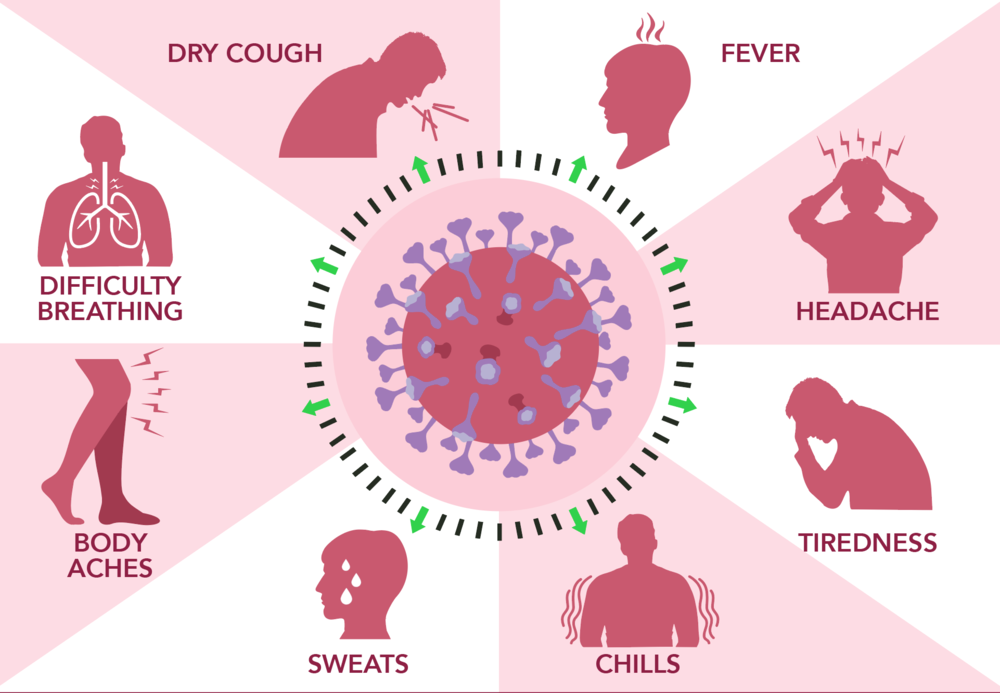Symptoms show up in people within two to 14 days of exposure to the virus. A person infected with the coronavirus is contagious to others for up to two days before symptoms appear, and they remain contagious to others for 10 to 20 days, depending upon their immune system and the severity of their illness.

Common symptoms of COVID-19
- Fever
- Dry cough
- Fatigue
Most Other symptoms
- Loss of taste or smell
- Nasal congestion
- Conjunctivitis (also known as red eyes)
- Sore throat
- Headache
- Muscle or joint pain
- Different types of skin rash
- Nausea or vomiting
- Diarrhea
- Chills or dizziness
The virus can lead to pneumonia, respiratory failure, heart problems, liver problems, septic shock, and death. Many COVID-19 complications may be caused by a condition known as cytokine release syndrome or a cytokine storm. This is when an infection triggers your immune system to flood your bloodstream with inflammatory proteins called cytokines. They can kill tissue and damage your organs. In some cases, lung transplants have been needed.
If you notice the following severe symptoms in yourself or a loved one, get medical help right away.
- Trouble breathing or shortness of breath
- Ongoing chest pain or pressure
- New confusion
- Can’t wake up fully
- Bluish lips or face
According to researchers in China, these were the most common symptoms among people who had COVID-19:
- Fever 99%
- Fatigue 70%
- Cough 59%
- Lack of appetite 40%
- Body aches 35%
- Shortness of breath 31%
- Mucus/phlegm 27%
Some people who are hospitalized for COVID-19 have also have dangerous blood clots, including in their legs, lungs, and arteries.
